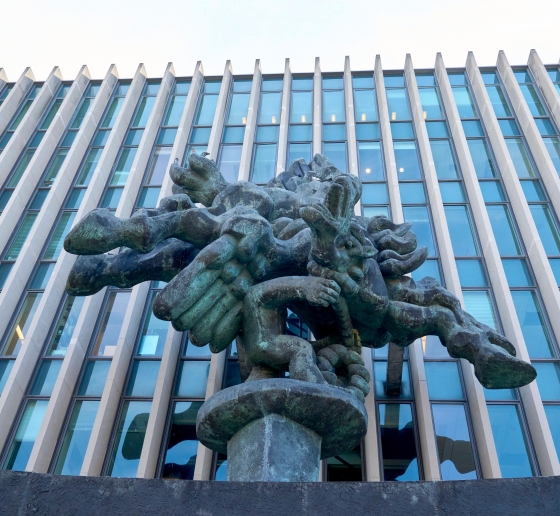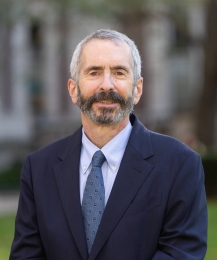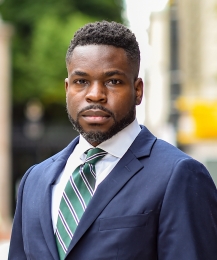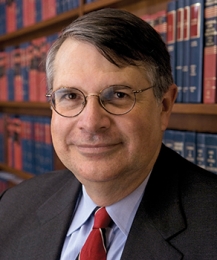Executive Power and the Electorate: Legal Questions After the 2024 Election
Columbia Law School faculty discussed legal implications of the outcome of the presidential election.

A transition of power from one president and political party to another raises questions on a range of legal issues—from the election process and voting rights to executive power and the future of federal agencies—four Columbia Law School faculty experts said during a Lawyers, Community, and Impact event. The discussion, held on November 13, took place eight days after the election of Donald Trump to a second term as president of the United States.
The Election Controversy That Wasn’t
Instead of anticipated post-election controversy over vote counting, the election system “held, despite all the pressures,” said election law expert Richard Briffault, Joseph P. Chamberlain Professor of Legislation.
“Whether or not you liked the results, the system worked,” Briffault said. “The system survived in an election where many people were quite nervous about the fragility and durability of the system.”
Prior to the election, efforts to perform mass purges of voter rolls largely failed in the courts, Briffault said, except for a “shocking” Supreme Court decision—upholding a preelection purge in Virginia that included at least some U.S. citizens who were eligible to vote—that “seems completely inconsistent with existing federal law. The Supreme Court decision is utterly unexplained by the court.”
While controversies and lawsuits remain over the mechanics of mail-in ballots and on allowing noncitizens to vote in local elections, “the electoral system dodged a bullet,” Briffault said. “One overall nice thing about the election is maybe it will reduce some of the attacks on the electoral system. The electoral deniers are relatively quiet.”
Who Voted How
One question to track as information about the election trickles in is whether recent trends of “racial depolarization” in national voting behavior continued or accelerated in the 2024 presidential election, said Kerrel Murray, associate professor of law and Milton Handler Fellow. That has implications, he said, for enforcement of the Voting Rights Act: For example, when arguing that a redistricting plan would cause racial vote dilution, that claim requires showing racially polarized voting—that racial minority and racial majority voters vote in blocs for different political parties, Murray said. Depolarization could make it harder to bring such claims.
Voter depolarization would also matter in challenges to racial gerrymandering, based on Shaw v. Reno, a 1993 decision that held that drawing voting districts predominantly on the basis of race is presumptively unconstitutional, Murray said. To show racial gerrymandering, a plaintiff must sometimes disentangle race from politics as a possible explanation for a districting plan’s design, he said. “Historically, I think most scholars have thought that is often impossible to do,” he said. But if racial depolarization continues, “it may become possible … to really engage in that enterprise in a productive way.”
National demographic trends in voting, however, don’t necessarily address state or local outcomes, Murray added. “The Voting Rights Act and the racial gerrymandering cases are very local enterprises. … So you could have depolarization nationally but perhaps not in certain jurisdictions.”
The Future for a Government Overhaul
President-elect Trump’s proposals to eliminate the Department of Education and create a Department of Government Efficiency (DOGE) may be difficult to achieve, said Thomas W. Merrill, Charles Evans Hughes Professor of Law.
Cutting federal agencies seldom succeeds, he said, partly because of vigorous opposition by groups narrowly focused on that agency’s mission. “These agencies typically have their small constituencies ... which can fight tenaciously against suggestions that they be abolished or repealed,” he said. “It’s very difficult to overcome that.”
A new federal agency is also challenging to create, Merrill said: “The president has no authority to create the department of anything without Congress authorizing it.” The DOGE effort will likely become an advisory committee, he said, similar to the Ronald Reagan–era Grace Commission, “which made dozens of recommendations for trimming the executive branch, none of which were ever adopted.”
Similarly, Merrill characterized presidential executive orders—a frequent tool of recent presidents and one Trump used in his first term—as having “legal effect. They are really directives by the president to the administration and people that are directly responsible to him in the administration to do this or do that. … They do not have the force of law. They do not govern the conduct of anybody outside the government.” Such orders also have “a very short shelf life,” since recent presidents have repealed the orders of their opposite-party predecessors, Merrill said. “For that reason alone, they don’t have as much impact on the way the world works.”
Trump will have the opportunity to appoint federal judges, and the courts may be helpful to the new president’s goal to curtail the reach of the federal government, Merrill said. “Because the conservative branch of the federal judiciary has been very antagonistic toward the administrative state in the last couple of years, you can predict that there will be an acceleration of tension and conflict between the federal courts and the administrative state going forward,” he said.
A “Frontal Assault”
Kate Andrias, Patricia D. and R. Paul Yetter Professor of Law, said that the election of Trump means that a host of legal questions about presidential immunity will remain unresolved, as the criminal prosecutions against Trump will likely be dropped or suspended. Trump’s victory will also present many new questions about the extent of presidential power, including the pardon power, and could raise questions about the ability of the federal government to restrict reproductive rights through legislation or regulation.
She also said that constitutional challenges to the National Labor Relations Board—which have been brought by Trump adviser Elon Musk—are a threat to agencies that play an important role in protecting workers’ rights.
“The effort to adjust the administrative state is not just about the overgrowth of the administrative state and the existence of agencies that may have outgrown their utility,” she said. “It is actually a much more frontal assault on the existence of administrative agencies.”
Trump’s plan to end civil service protection for many federal employees is much more likely to happen in his second term, Andrias said, although “it would likely require a rulemaking if not legislation” rather than an executive order. “Since the 1880s, we have had a system where most of the administrative employees are nonpolitical appointees. The goal behind that is to encourage expertise and also to ensure that people aren’t rewarded for partisanship or political loyalty. So it would be a significant change.”
About Lawyers, Community, and Impact: Launched in 2016, the series invites Columbia Law experts to talk about the most pressing issues of our time and brings deeper context and perspective to the work Columbia Law community members do both inside and outside the classroom.




